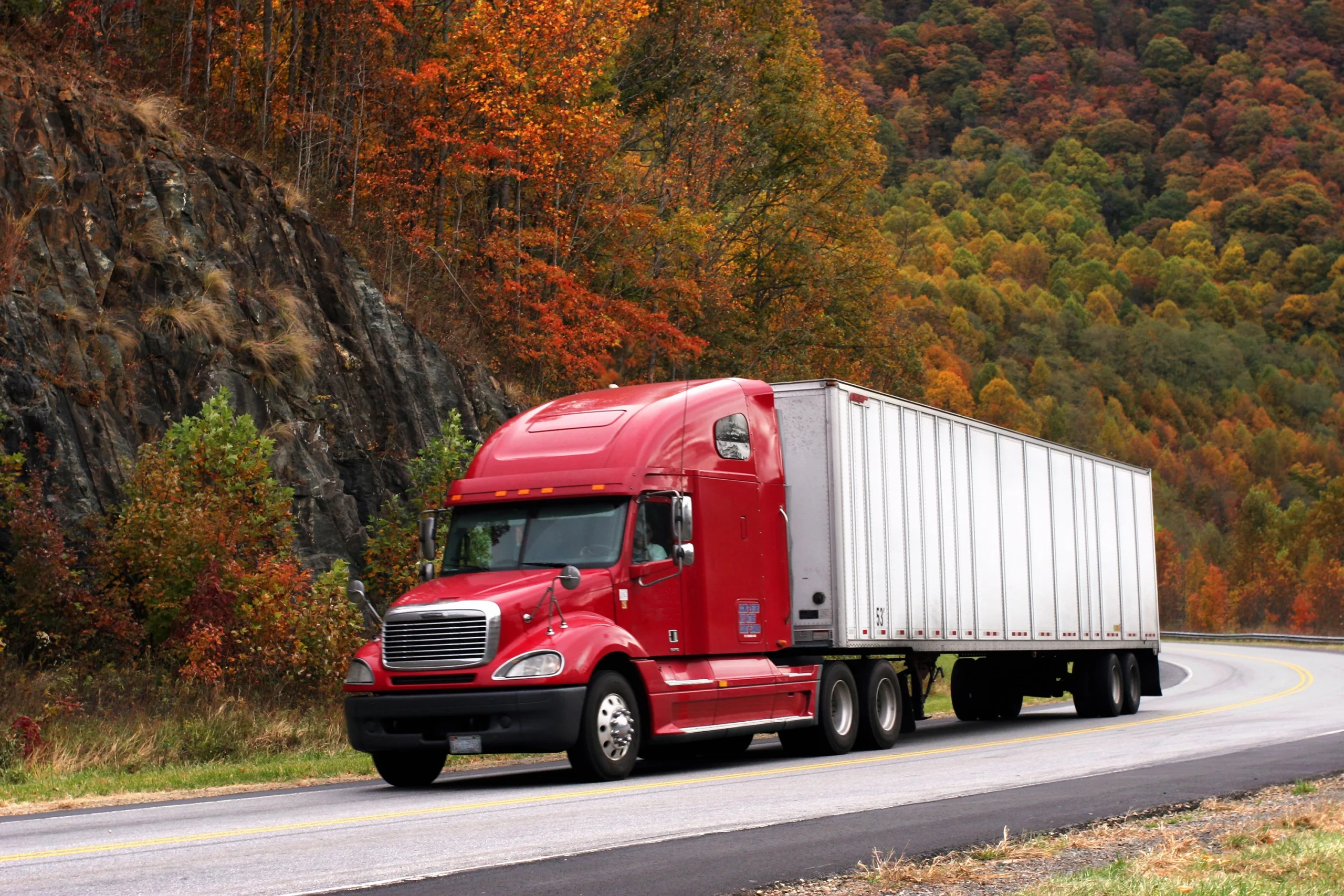TRUCKING ACCIDENTS
Jackknife Truck Accidents in Colorado Springs
Colorado Springs Jackknife Truck Accident Law Firm
It’s impossible not to feel sick when you see a semi-truck swerving down the road or dropping its load. You should be mindful of the hazards whether you are driving a semi-truck or driving beside one.
These huge cars offer distinct concerns on the road due to their sheer size. One of these dangers is the possibility of a semi-truck jackknifing. When a jackknife event occurs, it is quite likely to cause property damage and injury to everyone close.
Continue reading to learn why semi-trucks jackknife, how to prevent these collisions, and the risks that jackknifing poses. We’ll also talk about your healing choices if you’ve been injured in a jackknifing accident.
Consider contacting an expert attorney if you have incurred any injuries as a result of a commercial car accident. A truck accident lawyer will go through the details of your case and explain your choices for obtaining compensation. To discuss your situation, contact Warrior Truck Accident Lawyers, immediately for a free consultation.
Types of Truck Accidents
Accidents with a Jackknifed Truck
When a towing car slides and the driver is unable to straighten the car’s trajectory, a jackknife occurs—the trailer swings to the side due to the sliding action. The momentum eventually causes the cab and trailer to form a 90-degree angle. There are several hazards associated with a jackknife occurrence.
As the trailer swings out, it may collide with other cars. Furthermore, the trailer may wind up straddling several lanes, creating collisions as motorists attempt to stop or avoid it. Trucks that have been jackknifed are likewise in danger of crashing, spilling their cargo, or catching fire.
Free Consultation
NO FEE UNLESS WE WIN
Factors that Cause a Jackknife
The following variables enhance the likelihood of a truck being jackknifed across a road:
Excessive acceleration
Commercial vehicles, because of their size and weight, need a substantial amount of force to stop. This is particularly true when a truck is traveling at a high rate. When a truck is going at high speeds, a sudden halt may necessitate slamming on the brakes.
When you come to a sudden stop, your car may slide and lose control. Driving only ten miles per hour faster than the official speed limit raises the chances of a jackknife by 49%.
Extremely tight turns
The truck’s trailer may swing out while navigating tight curves or conducting evasive maneuvers. Swinging out is quite possible if the steering wheel is abruptly rotated or changed. The driver may lose control of the car if the truck swings out. A jackknife is 86 percent more likely to happen on a curved road than it is on a straight route.
Deplorable road conditions
Any factor that makes driving more difficult raises the likelihood of the truck driver losing control. When traction is lost, the weight of the truck shifts, forcing the cab and trailer to slide. In fact, the chances of a jackknife accident are more than three times greater when the weather is bad. A jackknife is 43 percent more likely when there is poor illumination.
Distraction and weariness among drivers
Commercial truck drivers are on the road for lengthy periods of time. Commercial truck drivers, on average, travel 3,000 miles per week and 11 hours per day. Driver weariness and inattentive driving may be caused by long days and boring miles.
Fatigue weakens judgment and reduces reaction time. Drivers’ eyes may not constantly be on the road due to distraction. Both of these factors may increase the potential of them having to make a quick correction, raising the risk of jackknifing.
Inexperienced drivers
A commercial driver’s license is required to operate a commercial truck in Colorado (CDL). The driver must pass multiple knowledge and skills examinations in order to get a CDL.
Pre-trip car inspection, basic car control, and on-road operations are all included in the examinations. However, there is no necessity for continued training. Newer drivers may be more inclined to panic in the event of an unanticipated danger due to a lack of sufficient training.
It’s a light burden
A jackknife is less likely to occur when the weight is heavier. Increased trailer weight reduces the trailer’s ability to slide and swing in a different direction. While a high load reduces the chances of a jackknife, it also increases the chances of a rollover.
Whatever the reason, a jackknife collision puts everyone on the road in peril.
What Are Some Ways for Truck Drivers to Avoid Jackknifing?
While it may be difficult to totally avoid car accidents, jackknifing may be avoided. Truck drivers and their companies should: • Require substantial and ongoing training to prevent these sorts of truck accidents: As previously stated, inexperienced drivers are a common cause of jackknife accidents.
While extra training is not required for obtaining a CDL, businesses may opt to do so. Commercial truck drivers may take a variety of training courses in Colorado. Drivers should look for training that includes jackknife avoidance advice.
For example, training might include learning how to maintain the trailer straight, turn in the direction of the skid, and ease off the road. Having these fundamental skills will go a long way toward lowering the number of jackknife accidents. Accidents will be less common, which will minimize the number of deaths and injuries caused by them.
Keep an eye on routine maintenance: Even the most cautious driver might be involved in a jackknife disaster. A jackknife occurrence is more likely in a badly maintained car. When a motorist needs to stop unexpectedly, jackknife accidents are common.
If certain brakes are working harder than others, brakes might lock up as a result of the imbalance. Locked brakes may cause jackknifing and sliding. Brake maintenance must be performed on a regular basis to prevent jackknifing. Before hitting the road, all drivers should make sure their car has had routine maintenance and a thorough inspection.
What Is the Risk of a Jackknife Accident?
Accidents with a jackknife are unquestionably risky. According to a study conducted by the National Highway Traffic Safety Administration (NHTSA), roughly 10% of deaths in big car accidents are caused by a jackknife.
This is especially significant considering that jackknifing is responsible for just 5% of heavy truck accidents, according to the Federal Motor Carrier Safety Administration (FMCSA). The incidence of deaths in jackknife accidents is twice as high as the rate of occurrence.
Accidents with a Jackknife Cause a Wide Range of Injuries
Accidents involving a jackknife are especially deadly since they have the potential to damage both the truck driver and other close cars. As the truck spins out of control and clogs the road, the odds of other cars colliding with it are great. Other cars may collide with one another as they try to avoid the jackknife.
Because of the size of a commercial car and the possibility of high speeds, injuries may be serious. The following are some of the most common injuries sustained as a consequence of a jackknife accident:
Head and brain damage as a result of a traumatic event. When an car collides with another car at high speed, the chances of sustaining a head injury rise. In many cases, individuals hit their heads on car items or are thrown from the car. As a result, head injuries such as skull fractures, lacerations, and brain damage are prevalent. Traumatic brain injuries may have long-term consequences.
Spinal cord injuries
Because of the force put on the car and the person, rollover accidents can result in catastrophic spinal cord injuries.
Neck injuries
During a truck collision, passengers may suffer from whiplash, herniated discs, slipped discs, and nerve damage.
Fractured bones
As individuals brace themselves or are flung about the car, broken bones may occur. Surgical treatments and considerable physical rehabilitation may be required depending on the severity of the break.
CUTS, BRUISES, AND SOFT TISSUE INJURIES
During a jackknife accident, the body is likely to suffer a hammering, including considerable bruising, torn ligaments, and strained muscles.
If you’ve been in a jackknife accident and have sustained any kind of injury, consult a doctor right once. Even if you don’t think you’ve been hurt, a medical practitioner should examine you. Serious injuries may be hidden by adrenaline.
In addition, failing to seek medical help as soon as possible may restrict your capacity to get insurance coverage. Following an accident, a medical examination may be critical to your ability to recover full compensation for your injuries.
Injuries that need to be healed
After you’ve taken care of your urgent medical requirements, you may be wondering what recuperation choices you have. To begin, you must evaluate if another person was to blame for the accident. Get a police record documenting the accident since blame is required for successful recovery.
The presence of the police may result in citations for infractions of traffic regulations. When it comes to showing culpability, citations may be quite useful. Make a note of any witnesses names and contact information as well.
If you were the driver or a passenger in a commercial truck when it jackknifed, you should consider whether:
- another car’s actions created an environment that caused you to jackknife;
- your employer required you to drive more hours or miles than allowed by federal law;
- your employer failed to perform or limited your ability to perform routine or required maintenance on the truck; or
- the city failed to properly maintain the roads.
If you were in another car that collided as a result of the jackknife, it’s critical to know what caused the collision. You’ll also want to make sure that your car and all of its safety systems, including airbag deployment, worked properly.
Your injuries may have been caused by flaws in your car’s safety technology. If this is the case, the car manufacturer might be held liable for the car’s safety systems failing.
You may be able to claim under your medical payments coverage (MedPay) insurance coverage even if you are unable to demonstrate blame. Colorado is one of ten states that mandate medical payments coverage (MedPay) coverage when registering a car. MedPay insurance permits an injured motorist to collect medical costs, lost earnings, and death benefits.
Even if you can’t prove the driver was at fault, you may still get your money back. MedPay coverage in the amount of $10,000 is mandatory in Colorado for all registered car owners. MedPay insurance is designed to lessen the time it takes for injuries to be paid and the amount of time it takes for personal injury claims to be litigated.
If you can prove blame, you should seek compensation for your losses, which might include:
- Medical expenses;
- Future medical expenditures, such as continuous care;
- Property damages;
- Loss of wages and future earning potential;
- Pain and suffering;
- Loss of pleasure of previous activities.
Some of these losses are obvious, such as medical expenses. Loss of future earning potential or future medical bills, on the other hand, necessitates complex calculations and forecasts. These damages may need the employment of an economic or medical expert witness.
You may design a recovery plan after you’ve identified culpability and assessed the damages you’re entitled. It may be necessary to file claims and communicate with numerous insurance providers in order to do this.
It may also entail launching a recovery case or negotiating a settlement outside of court. Whatever road you choose, it will almost certainly be a difficult and frustrating one.
Do you have any other questions? For further information, contact an attorney.
An attorney may assist you if you have suffered any injuries or are otherwise suffering as a result of a jackknife accident. An expert attorney can assist you in determining your recoverable alternatives.
Because commercial vehicles are controlled at the federal level, filing a lawsuit after an accident may be exceptionally difficult. Furthermore, the procedure will need dealings with insurance firms.
You’ll need an attorney who is familiar with the complexities of truck maintenance and operation, as well as the parties who might be held liable. Throughout the procedure, an attorney will function as a trusted counselor at your side.
Establishing blame, analyzing potential damages, and preparing for a successful recovery are all things that an attorney can help with.

FREE CASE REVIEW
We are standing by ready, willing, and able to help you. You can schedule a free consultation here on our website, or give us a call and talk to us. Whatever you prefer, we will accomodate you!








